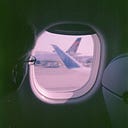This may be an unpopular take with the general public, but within the aviation industry, hardly anyone thinks that the special qualification rules for US pilots (min. 1,500 hours and ATPL before you can even be an FO) have had any impact on safety, and in fact in the long term they might end up making safety worse. Before getting mad, hear me out.
First off, there's no evidence that the improvement in US aviation safety is in any way connected to the 1,500 hour rule. Europe doesn't use this rule, as you stated, but what you leave out is that the European Union's safety record is just as good as America's over the same time period (the only major crash being Germanwings 9525, which was sabotage by pilot, not an accident). In short, there's nothing to suggest that the adoption of the 1,500 hour rule has created any kind of safety advantage of the US over Europe. Instead, the places where you see crashes continuing to happen are those with poor enforcement mechanism and weak civil societies, like Indonesia. Furthermore, multiple studies, including a comprehensive survey of thousands of pilot training records, found that those who had 1,500 hours before starting work for an airline do not perform better than those who have fewer.
Second, you state that the copilot's inexperience was a contributing factor to the crash of Colgan AIr 3407, which spawned the 1,500 hour rule. This is not actually true. The NTSB found that her inexperience was NOT a contributing factor, and in fact both pilots on that plane had more than 1,500 hours already. Rather, the main issue was that the captain, who had over 4,000 hours, never should have been flying a plane at all, because he had serious aptitude issues. He had concealed these issues from his employer by failing to disclose failures at previous employers, which would have prevented him from being hired if Colgan Air had known about them.
The NTSB made a lot of important recommendations after that crash, but tellingly, a new minimum experience requirement for airline pilots was not one of them. In fact numerous NTSB investigators are on the record saying that they neither asked for nor wanted the 1,500 hour rule, and that it didn't address what they saw as the root of the problem, which was the quality of the training and the pilot selection process, not the number of flight hours that pilots have. However, they did also get the things that they wanted, so I would be inclined to believe that changes to the training and selection processes are what has led to the improvement in aviation safety in the US.
And here are several reasons why the 1,500 hour rule may, in the long term, make safety worse:
1. It's driving the pilot shortage, which is causing airlines to hire anyone who can get an ATPL, even if they don't deserve it, and is the reason airlines are pushing for single-pilot certified airliners. The problem is that there are only so many small-scale operations where pilots can work in order to gain those 1,500 hours, and if you can't get a job with one of those, then you need to hire a plane and fly it around for 1,500 hours, which can cost well north of $150,000. As a result, for many people, getting an ATPL is prohibitively expensive. The result is not enough pilots, and when airlines are scraping the bottom of the barrel, that's bad news.
2. Experience is about quality over quantity. Many airlines are finding that pilots who spent 1,500 hours flying crop dusters or skydivers before being hired have developed numerous unsafe habits which persist for years afterward.
3. The 1,500 hour rule is one of the reasons why more regional and commuter airlines are seeking to re-register under FAR part 135 ('air charter and air taxi') rather than part 121 ('scheduled airline'), because there's no 1,500 hour rule for Part 135 carriers. However, that's because the safety regulations for Part 135 are less strict across the board, and in fact Part 135 carriers in the US have fatal accidents every year. I don't know about you, but I'd rather that 50-passenger jets remain under Part 121.
Anyway, that's why I, and most other aviation experts, think the 1,500 hour rule is safety theater, not actual safety.
